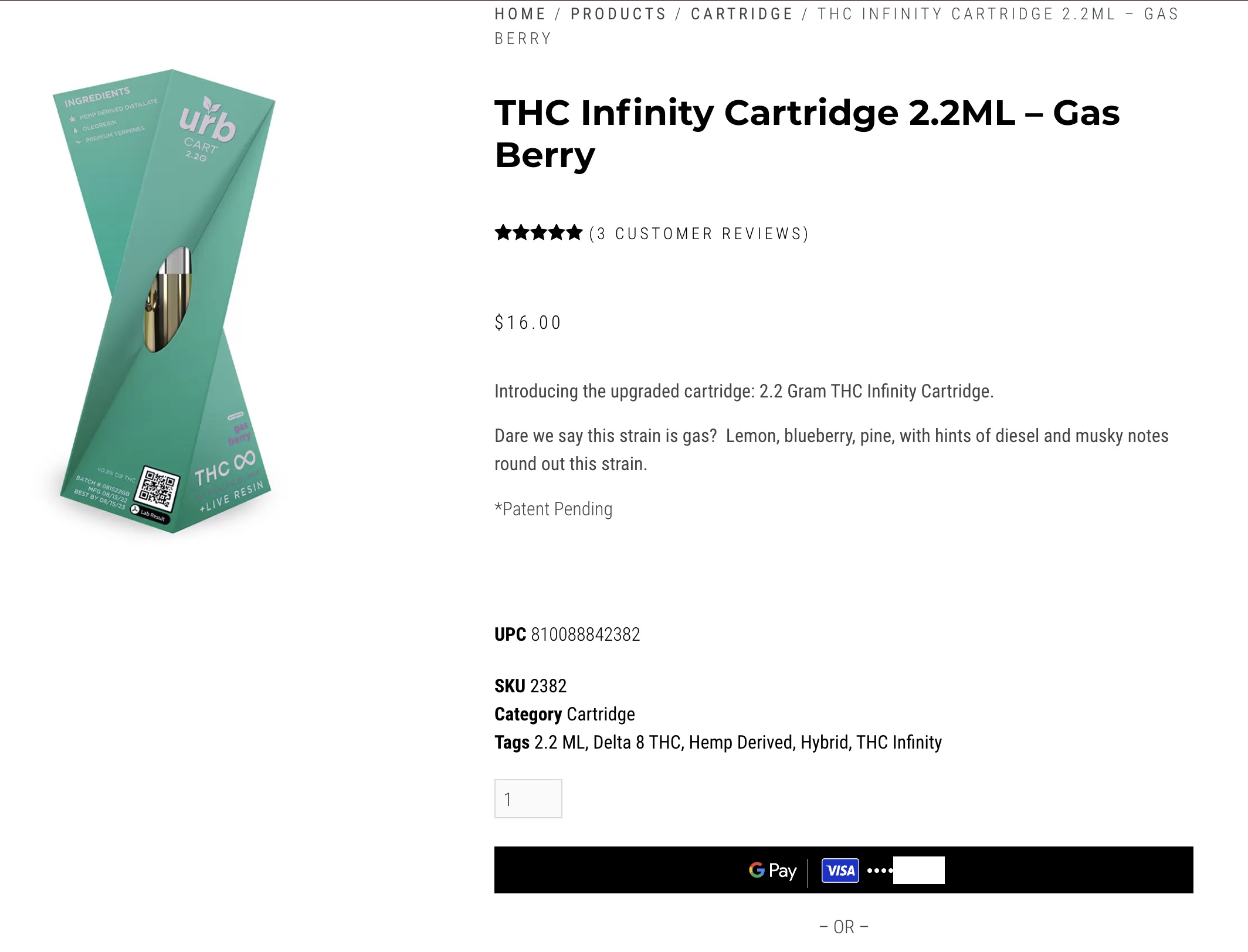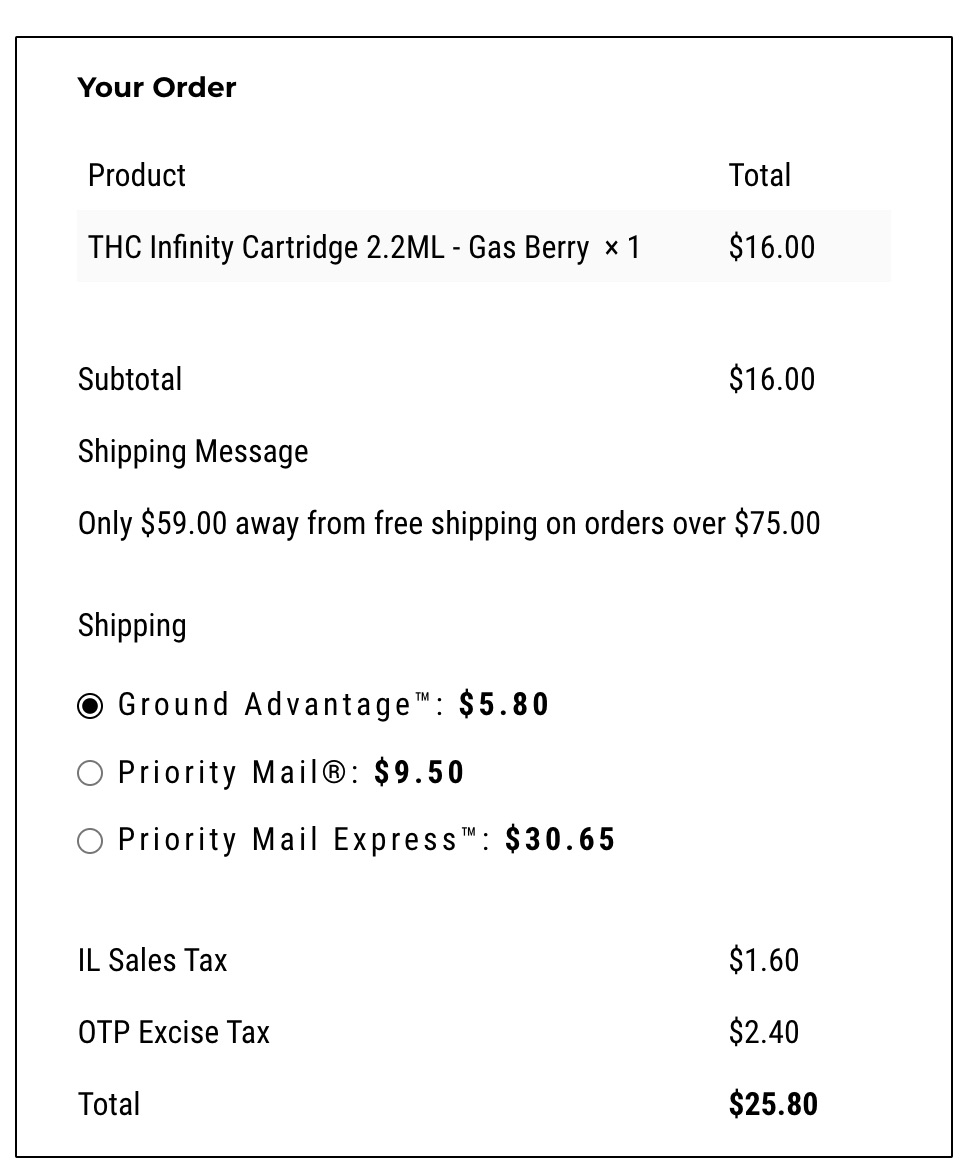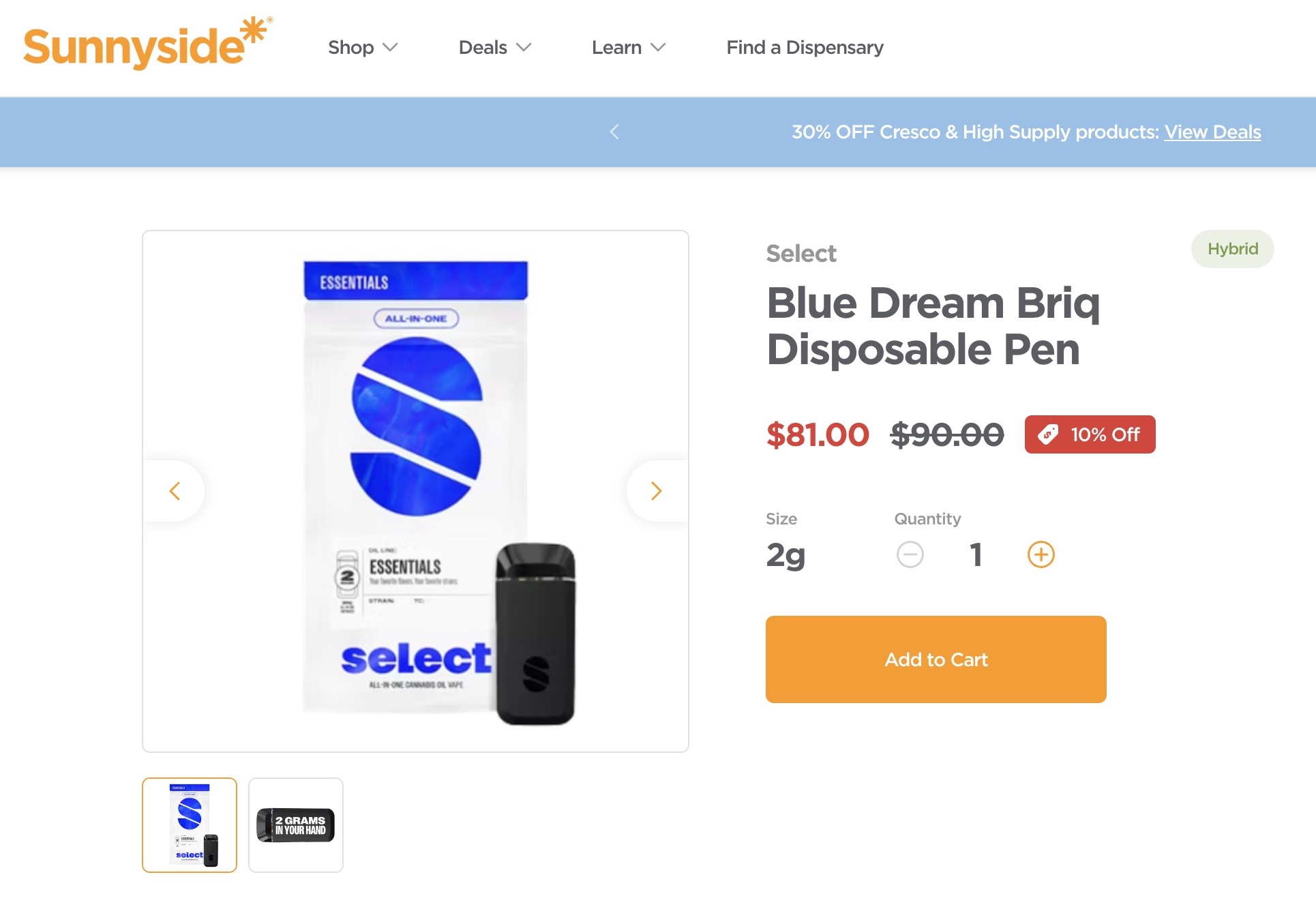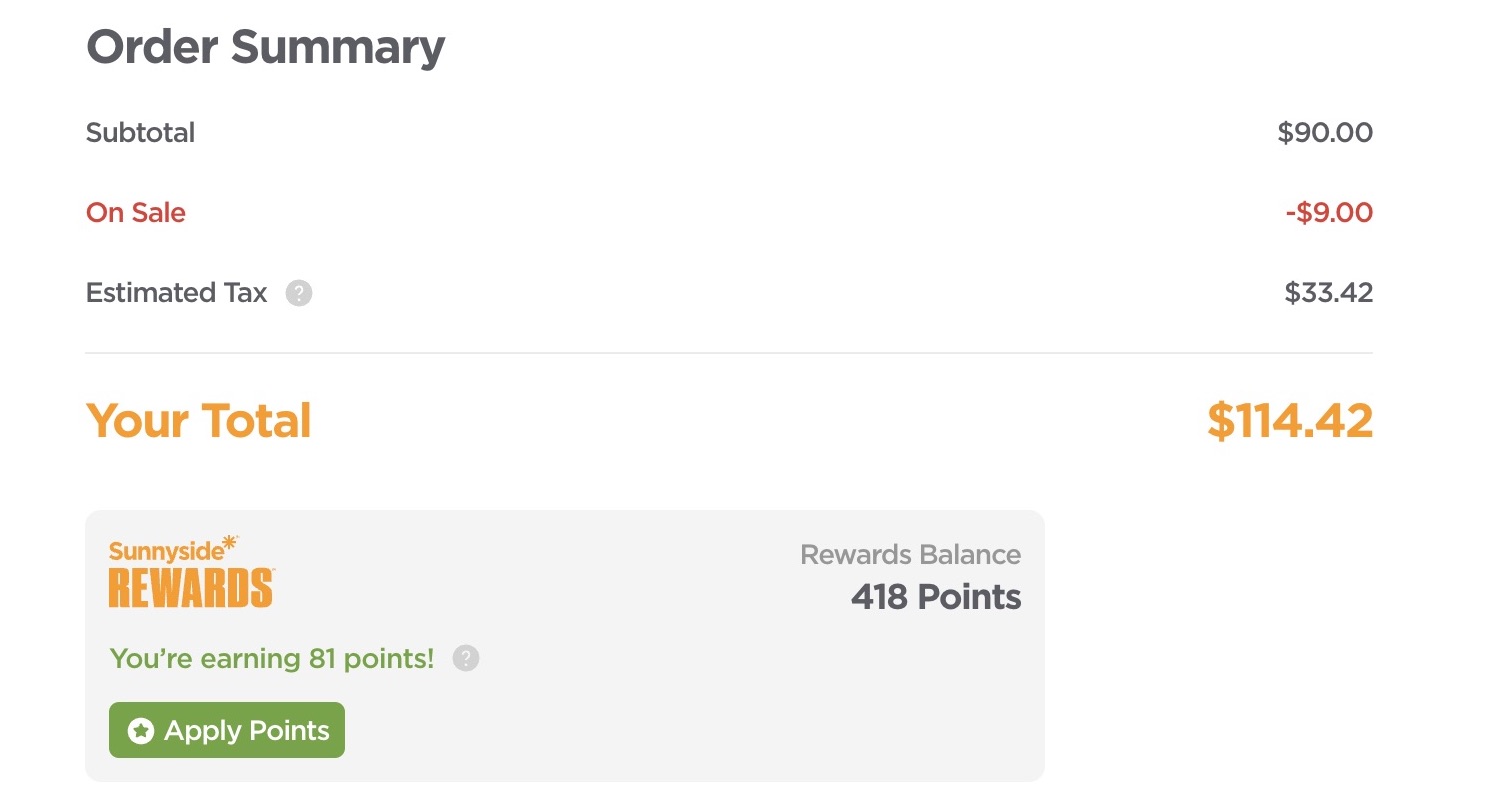The Dodgy Delta Dilemma: How Cannabis Prohibition Creates Potentially Unsafe Alternatives
Posted 02/24/2024
There are Psychoactive Cannabis products that you can buy online and ship to your doorstep right now in at least 22 US states. Some of the sites offering these products will sell you pre-rolled joints, edibles, Cannabis flower and concentrated cartridges with up to 3 grams of Cannabis wax. And no, these websites are not on the dark web nor are they illegal. And yes, these products will get you insanely high. So, what’s the catch? The secret is in the chemistry. These products contain a type of THC chemically derived from cannabinoids found in legal hemp. THC is the main psychoactive component of non-hemp varieties of Cannabis, which is the type of Cannabis found in state-sanctioned medical and recreational dispensaries. This type of Cannabis is usually heavily taxed and regulated by the states, technically banned federally and therefore does not enjoy the benefits of interstate commerce and banking. Hemp varieties of Cannabis, on the other hand, are not inherently very psychoactive, with most hemp varieties lacking enough THC to get you high. This fact paved the way for a massive federal deregulation of hemp under a 2018 Farm Bill1. However, the federal government's unwillingness to prioritize rescheduling traditional psychoactive Cannabis, combined with the 2018 Farm Bill led some entrepreneurs to try to have their cake and eat it too by selling chemically altered hemp products as almost indistinguishable alternatives to traditional weed1. On the surface, this seems to be a cunning win for stoners everywhere in the US, who now have access to low-tax Psychoactive Cannabis products regardless of their state’s laws on traditional psychoactive Cannabis. However, experts are urging caution with these products, citing concerns about the unknown long-term effects and the potentially dangerous chemicals used in altering hemp-derived Cannabinoids. In spite of these concerns by experts, the convenience, wide-availability, comparatively lower price tag, and lack of regulations have led to the massive popularity of Delta-8 THC and similar products. Companies such as Urb have extensive online selections and have set themselves apart within the Cannabis industry by becoming nationally-recognized Cannabis brands.
Background
The current legality of Cannabis in the United States is complicated to say the least. As of February 2024, most states have some sort of legalized Cannabis, however they all vary in their approaches in taxation and regulation. To make matters even more complicated, the typical stale gridlocked state of Congress has perpetuated the infamously out-of-date federal categorization of Cannabis as a schedule 1 substance which categorizes it as having a “high potential for abuse” and that it is “not currently accepted for medical use.”3 Article 6, Paragraph 2 of the Constitution and the supremacy clause clearly states that federal law takes precedence over state law. There is precedence of the federal government enforcing federal law in states where Cannabis has been legalized in some way. In the early years of state-legalization of Cannabis, Federal agents under the Bush administration raided over 100 state-legal growers and dispensaries and estimates of around 150 criminal cases were brought against Cannabis users and business owners in states where it was legal2. Obama, with his reputation as a Liberal, and as someone who has openly admitted to being a former Cannabis user, initially seemed committed to not interfering with state-legal operations. Under his administration in 2013, the US Department of Justice announced it would not enforce marijuana prohibition in states that “implemented strong and effective regulatory and enforcement systems to control the cultivation, distribution, sale, and possession of marijuana.” This was known as the Cole Memorandum, after Deputy Attorney General James M. Cole, who issued it13. However, federal cases, largely against Cannabis growers in legal states, continued to rise under the Obama Administration with 153 cases in his first term alone2.
The Trump administration proved to be a mixed bag in regards to Cannabis. During his campaign, Trump seemed uninterested in interfering with Cannabis industries in legal states. After being elected president, however, Trump appointed Attorney General Jeff Sessions, who infamously held the opinion that “good people do not smoke marijuana.” A hardline anti-drug southerner, Sessions wasted little time rescinding the Cole Memorandum4. Trump's legacy with Cannabis may have proven more about keeping Cannabis back from any type of federal progress, and less about actively going against state-legal operations. With this in mind, It is important to remember that under Trump, the Cannabis industry could hope for little progress in the fight for banking rights. Cannabis interstate commerce was to remain illegal even between two neighboring legal states. Canadian industry members could expect to continue being detained at the border5. The Cannabis industry as a whole did not expect any major new federal policy changes.
Those in the Cannabis Industry, do not expect any state-intervention from the current Administration under Biden. However, state legalization alone does not guarantee safety from federal intervention until Marijuana is federally rescheduled. State Cannabis being safe from the current presidential administration does not mean the next administration will not choose to enforce the outdated Federal law in legal states. In spite of this fact, the tide of state-legalization is past the tipping point with the majority of States choosing to end their harmful weed-prohibition eras by legalizing recreational and medical Cannabis.
While Federal Cannabis cases against select operations have not ceased, federal raiding of state-sanctioned medical and recreational Cannabis grow operations and dispensaries against the will of the state residents is proving to be politically self-defeating in the long run. This does not mean that members of the Cannabis industry will be able to sleep easy. Only a federal rescheduling can give them real peace of mind. This has caused some hungry entrepreneurs and investors to look for ways to enter the potentially lucrative Cannabis industry without working directly with traditional Cannabis. Oddly enough, a bill signed into law by then-president Trump unintentionally created a loophole that would give these entrepreneurs and investors exactly what they were looking for.
The 2018 Farm Bill
There was one bill passed through congress and signed by Trump that initially seemed like a small, less significant win for Cannabis rights activists, but whose impact has proven to be more than its framers bargained for. The 2018 Farm bill was a bipartisan bill spearheaded by the then-Senate majority leader Mitch McConnel, a Republican, with the goal of supporting farmers, ranchers, and forest managers. The bill improved crop insurance, maintained disaster programs, promoted voluntary conservation, enhanced farm support programs, ect. One small provision of the bill removed Hemp, including low-THC derivatives of Cannabis, from the definition of Marijuana in the CSA, Community Supported Agriculture6. Meaning Hemp products previously considered a schedule 1 substance, were now legal. The intention of this provision was to modernize the US policy on hemp, which has an extraordinary amount of industrial uses. Helping industrial hemp farmers was clearly the goal of this bill, not to make way for hemp-derived psychoactive products. Make way, though, it did.
Lets Get Chemical
To fully understand just how the 2018 Farm Bill led to hemp products that get you stoned, we need to learn a little chemistry. I know, just hear me out. See, the 2018 Farm Bill allowed “low-THC” varieties of Cannabis. Technically, this is referring to the Delta-9 THC, or the active psychoactive chemical in traditional psychoactive Cannabis. Meaning all types of Cannabis with a natural level of delta-9 THC under 0.3%e would be considered “hemp”5. The writers of this bill were not chemists, however, and they failed to understand that non-psychoactive hemp plants still contain cannabinoids, primarily CBD, but also other cannabinoids including trace amounts of delta-9 THC (under 0.3% by law) and delta-8 THC7.
Hemp-derived CBD has exploded in recent years into its own industry due to its apparent health benefits8. CBD is non-psychoactive, however, and therefore does not produce the high Cannabis users feel from delta-9 THC in traditional Cannabis. Hemp, as-is, cannot get you high, but through a process called isomerization, non-psychoactive CBD and the trace schedule 1 Delta-9 THC can be converted to the psychoactive and unregulated Delta-8 THC9. As previously stated, Delta-8 THC does appear naturally in Hemp and also in Marijuana, just in very trace amounts. It does little to account for the high users feel when using marijuana. When artificially concentrated in high amounts through isomerization, Delta-8 THC can pack a very similar punch to Delta-9 THC.
Every delta-8 THC product you see at your smokeshop went through the process of concentration through isomersion9. There is no natural Cannabis with high concentrations of delta-8 THC9. Delta-8 THC is not even the only psychoactive cannabinoid that can be created by altering the CBD and other cannabinoids in hemp. Delta-6 THC, Delta-7 THC, Delta-10 THC, THC-O, and more can all be manufactured out of hemp9. Every one of these just mentioned synthetic Cannabinoids, unlike Delta-8 THC, are not known to occur in nature9 and are largely untested. This is a cause for concern for some. Regardless, many Delta-8 products contain one or more of these other artificial THCs. For the sake of simplicity, I will begin to refer to these products as Delta-8+ products.
Among the concerned parties was the DEA, who in 2023 attempted to clarify that these synthetic cannabinoid-altered hemp products like Delta-8 were indeed categorized the very same as schedule 1 Cannabis. “Delta-9-THCO and delta-8-THCO do not occur naturally in the Cannabis plant and can only be obtained synthetically, and therefore do not fall under the definition of hemp…Thus, Δ9-THC-O and Δ8-THC-O meet the definition of 'tetrahydrocannabinols,' and they [and products containing Δ9-THC-O and Δ8-THC-O] are controlled in schedule I by 21 U.S.C. § 812(c) Schedule I, and 21 CFR § 1308.11(d).”10
Many are unconvinced of this definition, however, pointing out that the raw material used in these products are legally categorized as “Hemp” and therefore the chemical derivatives of the product should be treated the same legally.
Delta's Big Moment
It has been a year since the DEA’s statement, and Delta-8+ THC products seem to be more ubiquitous than ever. They are a large draw to today's smoke shops offering users a weed high at a more affordable price and less red tape than natural dispensary pot. As mentioned, Delta THC products can be easily ordered online with a credit card and little proof of age. To some, it is worth saving the money. Many states, including Illinois, made the error of prioritizing profit over mass adoption when they legalized recreational Cannabis by implementing extortionate taxes. The failure of these states to fairly tax legalized Cannabis is as much to blame for the surge in Delta-8+ THC popularity as the federal government. Cannabis is medicine to all of its users. It is a natural, effective mental and emotional boost, a pain reliever, and sleep aid. It is the respite from the hellish economic reality for millions of Americans. The same dismal economic reality pushes some stoners to look for a way to get high without the greedy price-gouging that we are all too used to nowadays.
While for some, it may seem crazy to risk your health on an untested synthetic Cannabis product just to save a few bucks. This same crowd might be shocked to see just how much more affordable Delta-8+ THC products can be than state-sanctioned natural Cannabis.
Take, for example, vape cartridges: a popular way to get high discreetly and conveniently. However, they are often subject to the highest Cannabis state taxes due to their high potency. Chicago, using this convoluted taxing structure, expects stoners to pay a 25% tax for Cannabis products over 35% THC14. For some context, Urb, a Delta-8 product giant, will sell you a hefty 2 gram vape cartridge online for $16 before tax, and with regular Illinois state sales tax and shipping, it will put you back $25.80. They'll even take Google Pay which is a breeze compared to the complicated ATM-transaction or cash Dispensary payment system. Walk into Sunnyside Dispensary in Wrigleyville, and a 2 gram wax vape will cost you $81 before tax and a whopping $114.42 after. Oh, and that's the 10% off sale price! Clearly, when budgets are tight, there is an incentive to choose delta-8 products with a high that is about 95% the same but costs 77.45% less than their dispensary counterparts.




Is it Safe? Maybe. Maybe not.
Critics cite many concerns when it comes to these Delta-8+ products. First, is the lack of substantial testing of the individual products themselves. State legal Cannabis is almost always subject to testing by law to ensure the product is free of toxic chemicals or other contaminants and to obtain important information such as potency, terpene and cannabinoid content15. All of this information is needed to ensure proper and safe dosage of Cannabis products and to allow users to locate the correct type of strains for their conditions (insomnia, pain management, ect.). While the cost of testing of these products will inevitably be passed to the consumer, these regulations are seen as necessary to ensure safety and trust in the Cannabis industry. Many states also have legal limits on edible potency for safety reasons. Delta-8+ products, being subject only to laws on industrial hemp which lawmakers did not intend for ingestion, are subject to none of these previously mentioned safety oversights. This is especially concerning when you consider delta-8+ products are more likely to contain leftover chemical contaminants from their unique lab manufacturing process11. Even if Delta-8+ products were properly tested and free from contaminants, you still need to contend with the uncertain nature of their health effects, especially long-term. While traditional Cannabis is not free from risk, prohibition has arguably held back our current understanding of the plant's full effects on health, and potency in recent decades has exploded with aggressive breeding. There is enough anecdotal evidence to fill an ocean on its positive impact on users’ health. You just don't see a lot of lifetime stoners dropping dead. Delta-8+ THC users must ingest these products knowing their unproven reputation. But to their users, if it feels like weed, then it's probably safe like weed. Right?
The FDA website provides some information on 104 reported adverse events stemming from Delta-8+ products between December 1, 2020, and February 28, 202211. These adverse events included hallucinations, vomiting, tremor, anxiety, dizziness, confusion, and loss of consciousness11. As bad as those cases sound, they are not uncommon adverse events related to regular Cannabis. A study done in Canada cited 105,203 individuals hospitalized for Cannabis use in the country from January 2015 to March 2021 with national legalization occurring in 201812. Main diagnoses included acute intoxication, harmful use, dependance, withdrawal, poisoning, psychosis, ect.12
A State Issue
The future of delta-8+ in America will ultimately be decided by the states. Many have already taken action to ban or even regulate delta products with differing goals. Alaska, Colorado, Delaware, Hawaii, Idaho, Massachusetts, Mississippi, Montana, North Dakota, Oregon Rhode Island, Vermont, Washington, and West Virginia all have instituted a hard ban on these products16. Nevada and Utah and New York all banned these hemp products but marijuana-dirived delta-8+ products could technically be approved for their state marijuana industries16. Iowa, Kansas, Louisiana, Michigan, Minnesota, New Hampshire, and Virginia decided to close the 2018 Farm Bill Loophole by instituting their own limits on ANY type of THC in hemp products, not just traditional delta-9 THC16.
Only 3 states have implemented progressive comprehensive regulations on delta-8+ products; California, Connecticut, and Tennessee. California (following its own legacy as a pioneer in Cannabis law) and Connecticut have fully integrated Delta-8+ products into their established marijuana programs, with all of the corresponding testing, regulation, and taxation16. Tennessee uniquely classified delta-8+ products as a “Hemp-derived THC”, and allows its use for adults over 21 years of age, requires testing, informative labeling, and bans marketing to youths16.
Alabama, Florida, Kentucky, Maryland, and Wyoming have only instituted simple age restrictions on Delta-8 products. Georgia, Indiana, Maryland, Pennsylvania, South Carolina, and Texas are in current legal action with Delta-8 products. Arizona, Arkansas, Illinois, Maine, Missouri, Nebraska, New Jersey, New Mexico, North Carolina, Ohio, Oklahoma, Washington D.C., and Wisconsin have little to no laws regarding delta-8+ THC yet16.
Delta's Uncertain Future
Only time will tell what kind of impact delta-8+ THC products will have on the Cannabis industry long-term. Will it fade into obscurity when the US Federal Government finally reschedules Cannabis and access to quality traditional Cannabis grows? Will nationally established Delta-8 brands integrate traditional Cannabis into their product lines with a national rescheduling? What will future attitudes be concerning the safety of delta-8+ products? Will most states decide to integrate delta-8+ products into existing state Cannabis programs or distinguish them in their own category? Will distinct preferences for delta-8+ highs keep a market alive even if it is taxed and regulated the same as traditional Cannabis? Will the federal government close the loophole in the 2018 farm bill? How will future regulations on these products affect the industrial hemp industry? Will serious unforeseen long-term health risks arise linked to use of delta-8+ products? Will a deeper understanding of delta-8 THC and similar unnatural cannabinoids derived from natural cannabinoids reveal health benefits distinct from natural Cannabis?
Ultimately it will take time, progressive policies, and extensive research before we can reach conclusive decisions on many of these questions. In the meantime, Delta-8+ products are not recommended by The Bud Breakdown. However, it is clear that economic, political, and legal factors will continue to influence users to try Delta-8+ products, for the time being.
